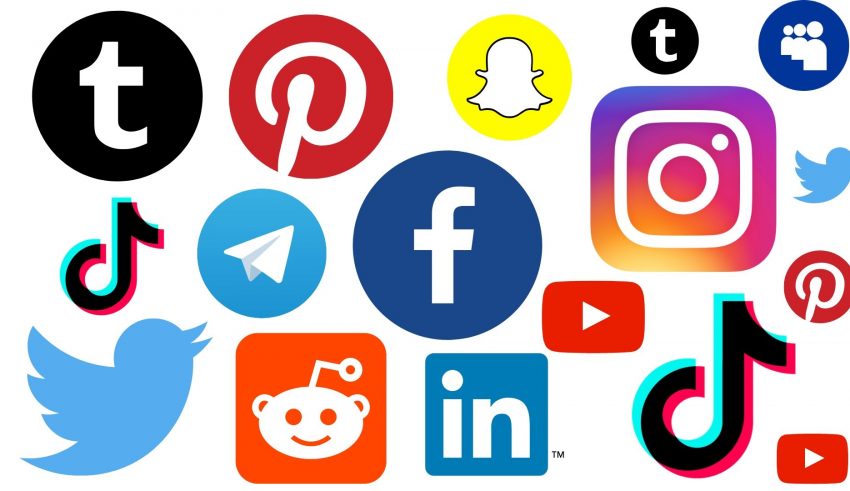I love social media. I do not post often but do enjoy consuming content on Instagram, Facebook, Snapchat, Twitter, and (very recently, due to peer pressure) TikTok.
Consuming content may be problematic here, but it is true. Even “original” content is still dubbed over with filters, voices, and prompts to get more viewers. The creators of TikTok have created a platform for cookies to be used to dictate what a follower will see and therefore the algorithm is truly in control of the content viewed. This is kind of cool, but also equally as scary. My dad loves the algorithm because he gets to see more and more golf and cooking tips (that is the cool part), the scary part is if you continue only viewing content about how climate change or Covid is a hoax, then you are never given an alternative point of view (that is the scary part).
It leads back to the Social Dilemma, where we only receive content that we want to see, however we miss out on opposing views and ideologies when we only view and experience the narrative that best fits us. This is starkly different than the social media I began using in high school. Facebook was new and exciting and eventually even got Twitter as well. At the time, there was limited discussion about the impacts of social media and digital footprints, so it took me years to clean and tidy up posts, comments, shared or retweeted posts, and so on. Fortunately, I had never really said or posted anything that could be damaging to my career, but it became abundantly clear when I began approaching internship and career opportunities that a clean “Google Search” of myself was imperative.
Going forward, students today need to have proper education on digital citizenship, stewardship, and what their digital footprint looks like. Often, I have found some of my students post or share inappropriate content that sometimes gets them in trouble with the police or school administration, and these situations could be damning to students as they begin looking for part-time jobs and eventually careers within the next decade. Is there a statute of limitations that we should follow when it comes to what a person has posted or shared in the past? I think of some of the images posted about our current federal leader and how many people are okay with it because it happened 20 years ago. Thoughts? Comment below!


You are totally right. In my experience, not only do my students, but also my friends and family (and sometimes me too) need a reminder or a quick educational session about being aware of what you post, like, share, or comment on. Whether it is to stand up for something or to stand behind something, it is always important to take a breath before making any decisions. I know recently that an old friend of mine would like and share ridiculous tweets that Trump would share thinking they were ridiculous and so outrageous that it was funny, but didn’t realize the implications that his actions would eventually have, and it got him in a lot of hot water. Sometimes I think we make decisions with social media that we don’t put a lot of thought into, and it could end up hurting ourselves and a lot of people around us. So like you said, I think it’s important that we teach our kiddos about social media etiquette (if you can call it that) and prepare them for what they may embark upon. I look forward to reading more of your posts.
LikeLiked by 1 person
Hi Dalton,
I agree! Students definitely need instruction and discussion surrounding their digital footprint and being mindful of what they are posting/sharing online. I find your end point quite difficult to answer. When situations like you described occur part of me questions whether one thing that someone posted 20+ years ago should be able to end their career or ruin their reputation. I think that people are definitely able to change, grow, and learn throughout the years so something that was said/done 20 years ago may not be reflective of who someone is now and their current values. However, it is also possible that whatever it was is still representative of who they are now and they just happened to get caught so it is difficult to say for sure.
LikeLiked by 1 person
Totally! It is a difficult thing to make a rule about, I guess case by case basis is best. I also hope that students change and evolve over the years as well. We all do silly things as teenagers, but sadly now those actions are documents and recorded online! Interesting time to grow up!
Thanks for the reply.
LikeLike
Hi Dalton. Interesting blog. I noticed that you applied the blog as a teachable moment discussing cookies and algorithms. I like that!
You wrote: “Going forward, students today need to have proper education on digital citizenship, stewardship, and what their digital footprint looks like”. I agree that schools do need to recognize the importance of digital citizenship. Schools also need to adopt a critical perspective in unpacking the meaning of “proper education”.
Looking forward to reading more from you Dalton.
Brenda
LikeLiked by 1 person
Hi Dalton,
You have a very thought provoking and what most resonated with me was your comment that stated: “Is there a statute of limitations that we should follow when it comes to what a person has posted or shared in the past?”.
This comment brings up a important point about consequences for our actions, and some of the ethics of online posting. It is really easy for us (as humans) to act in a certain way, or perform a certain behaviour out of a response because we are upset, but we typically do not always see a consequence or outcome from these actions. However, if something is posted online in a state of emotion or reaction, there is a severe consequence that comes with that action because there is no erase button or forgetting when something is online. As well, it is so hard to teach students about the future consequences of their actions when they have no lived it yet. Therefore, it is a sad reality that anything online can and sometimes will haunt people, but without necessarily the proper education, and or negative experience of it, it does seem that this system will continue to cycle.
What do you think our role as an educator is to try and help students to authentically realize that there are consequences to online actions without just simply utilzing fear mongering?
Thanks for sharing!
LikeLike
Thanks Chris. I agree, it is an interesting cycle. I think bringing awareness to future implications of posts and content will give students an understanding, but oftentimes they will need to learn by doing and making mistakes. I often struggle with the notion of making students aware and wanting to pave the way so that they do not make mistakes; mistakes is how we learn and sometimes we all have to learn the hard way. It will be interesting to see how the actions of a certain percentage of the population who speak out against masks and vaccines will affect their future endeavors. I think we are right on the cusp of new ideologies related to punitive actions based on what is posted on the internet!
LikeLike